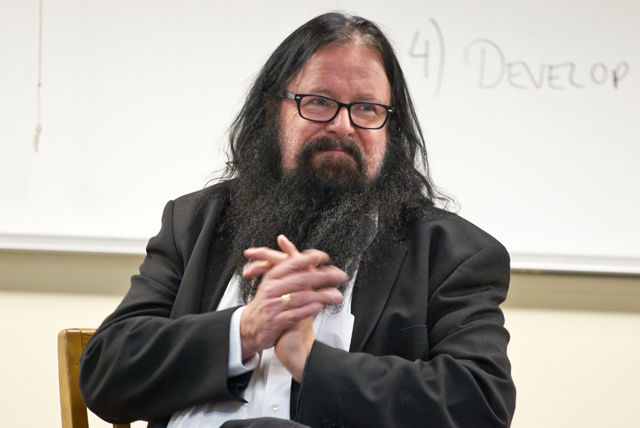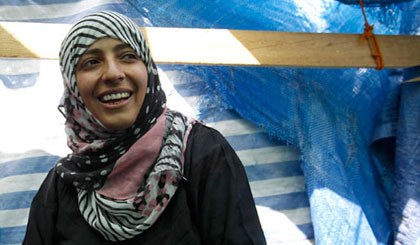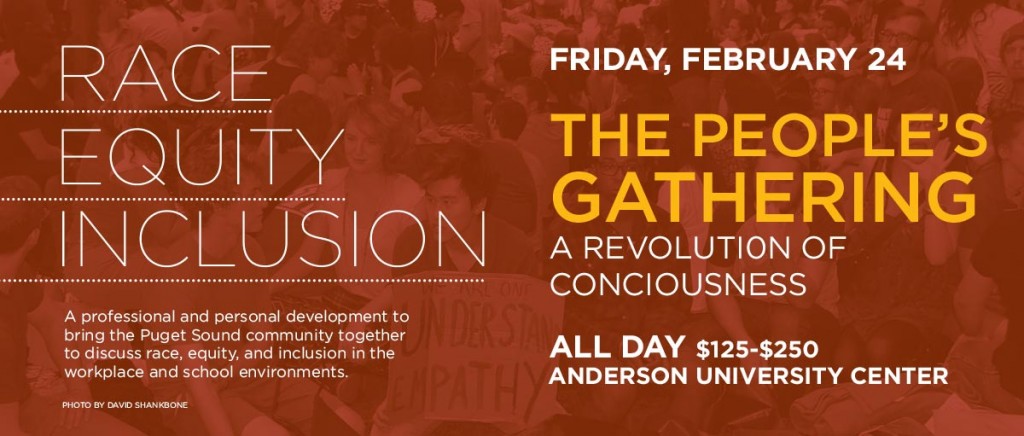Page 21 • (600 results in 0.025 seconds)
-

Dear Campus Community: This Sunday, November 20th, is the annual observance of the Transgender Day of Remembrance. Founded in 1999, TDOR is an opportunity to memorialize the people murdered because of transphobia, and to bring attention to the continued violence and prejudice endured by the…
Anderson University Center, I invite you to join me for our first Listen Forum, focused on community questions and dialogue related to implicit racial and ethnic bias. This forum will begin to answer the questions: What is implicit bias? Why does it matter? What is the impact on belonging? How do we respond? We must understand that our identities–our points of privilege and oppression–can’t be considered in isolation. Gender and race, identity and politics, crime and justice, and family and culture
-

Students and experts debate October 4 Members of the Pacific Lutheran University Speech and Debate team will partner with local policy experts on Oct. 4 to publicly debate the potential benefits and pitfalls of voting for a third party in the 2016 presidential election. Democratic Communication…
Communication Specialist Aaron Sherman and student debater Mariah Collier will speak for the proposition, “a vote for a third party is a wasted vote.” Ben Meiches, University of Washington-Tacoma professor of security studies and conflict resolution, and student debater Tate Adams, will argue for the opposition. “I think that the viability of a third-party vote is one of the most important problems that we face, as Americans, in the context of this upcoming election,” Adams said. Collier agreed, voicing she
-

Four time Nobel Peace Prize nominee Steinar Bryn shares his experiences with the PLU community. (Photo by John Froschauer) Peacemaker visits PLU Campus By Katie Scaff ’13 Dialogue involves movement, visibility, relationships, and understanding, according to Nobel Peace Prize Nominee Steinar Bryn. Bryn was on…
understanding of your enemy,” Bryn said. Bryn is the lead architect of the Nansen Dialogue Network (NDN). Through his leadership and dialogue facilitation, divided societies throughout former Yugoslavia have made progress towards reconciliation and reintegration, he said. “People in conflict see two different realities, which is why communication is so important,” Bryn said. “If one spent more time on developing a better understanding all kinds of mediation would run smoother.” Bryn and NDN’s 2012 Peace
-

PLU joins Nobel Peace Prize Forum as a full sponsor The Nobel Peace Prize Forum Pacific Lutheran University is joining the Nobel Peace Prize Forum as a full sponsor. The Forum is the Norwegian Nobel Institute’s only such program or academic affiliation outside of Norway.…
Nobel Peace Prize in 2011. PLU will send students and faculty from diverse disciplines to participate in the Forum each year. Peace Scholars Program An outgrowth of the Nobel Peace Prize Forum, the Peace Scholars Program was established in 2011 as an annual summer program designed to deepen students’ understanding of the central issues and theories regarding conflict, war and peace. Two students from each of the six consortium schools are awarded a seven-week academic experience in Norway. Students
-
Since September your student has been learning and growing both academically and personally. They have been taking on the world with increased levels of independence and responsibility, and their
changes, in the long run, your student will probably maintain many of the core values that you instilled. Returning home for Thanksgiving Break and Winter Break is very exciting for students as they return to the familiarity of home, friends, and family. With that being said, there may be conflict in regards to what life will look like for your student once they return home. Keep in mind that your student has been living independently for several months, and their expectations may be different than
-
If you are interested in summer study away, make sure to schedule an advising appointment. This is required as part of the application process.
(Funded) Summer OpportunitiesWang Research GrantsStudents who have had study away and cross-cultural experiences are encouraged to apply for funding to conduct an international independent research project. Find out more information here.Peace Scholars Program Two PLU students are selected each year to participate in this intensive summer program centered on peacebuilding, conflict and war. Find out more information here. Critical Language Scholarship The Critical Language Scholarship (CLS) Program is
-

Tune in: The People’s Gathering is streaming live TACOMA, WASH. (Jan. 27, 2017)- Genesis Housing and Community Development Coalition will host a professional development conference called The People’s Gathering on the campus of Pacific Lutheran University on Friday, February 24. The full-day conference will focus…
MUTUAEddah Mbula Mutua, Ph.D. is a Professor of Intercultural Communication at St. Cloud State University, Minnesota. She teaches in the area of intercultural communication. Her research focuses on peace communication in post-conflict societies in Eastern Africa with a special interest in the role of women in post-genocide Rwanda and grassroots peacebuilding initiatives in Kenya. In the U.S., her areas of research include East African refugee and host communities’ interactions in Central Minnesota
-
Computer and Network Use Policies Pacific Lutheran University provides computing and networking resources to students, faculty and staff. Use of these resources is a privilege granted to members of our community as we work and learn in an environment supportive of education and service. These policies, which apply to all users of PLU’s computing and...
this community by abiding by computing policies and reporting violations of these policies immediately. Complaints of potential policy violations should be reported to the Help Desk, 253-535-7525 or e-mail to helpdesk@plu.edu. Violations of the Policy alleged to have been committed may be referred to the Student Conduct Coordinator, the Director of Human Resources, the Provost, or another appropriate University Officer. Activities that in any way conflict with these policies can result in sanctions
-
Pacific Lutheran University is located six miles south of Tacoma, in suburban Parkland, Washington, on a 156-acre woodland campus.
Studies, Women’s and Gender Studies. Activities: Twelve choral and instrumental ensembles, dance ensemble, theatre, speech and debate, newspaper, radio, television, literary magazine. Seventy-two clubs including community service, religious, environmental, social justice, political, cultural/ethnic, business, non-traditional student, nursing, science, computer and outdoor recreation. Athletics: NCAA Division III. Women’s intercollegiate sports: Soccer, cross-country, volleyball, basketball, swimming
-

Yannet Urgessa ’16 has lived on three continents and speaks five languages. But it took coming to PLU for her to feel comfortable in her own skin for the first time.
family relocated when she was 6 years old, fleeing a country rife with political instability. Her family never abandoned their ethnic Oromo roots, but actively immersed themselves in their new culture. Now, she’s relocated again, extending her international education to a third continent as a sociology major at PLU. The university’s commitment to global education is a value that’s familiar to Urgessa. She speaks five languages — Amhara and Oromo that are native to Ethiopia, English, Norwegian and
Do you have any feedback for us? If so, feel free to use our Feedback Form.


